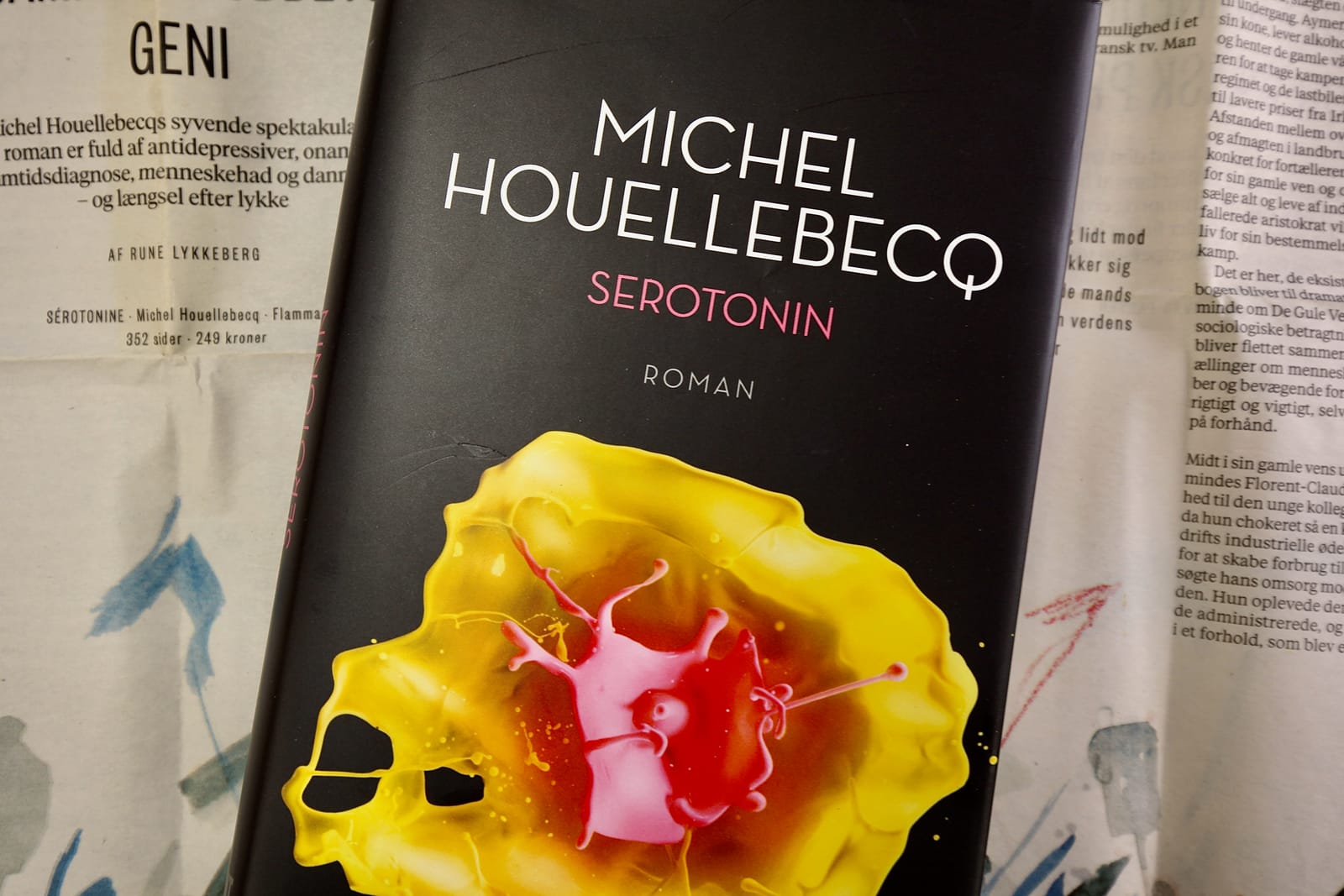Few writers have the ability to exhibit the modern Western European like Michel Houellebecq. With his latest thriller novel, the French provocateur once again lives up to the massive expectations. No doubt that literature is alive and holds hope for all those of us who think it's all going to hell and like to comfort ourselves with a good book.
Michel Houellebecq published the novel Submission back in January 2015, the same day Islamist madmen stormed the editorial offices of the satirical magazine Charlie Hebdo in Paris, shooting and killing 13 people.
Serotonin is thus both symptom and treatment—exactly like late capitalism, which with its Janus head simultaneously seduces us and screws us.
Today, yellow vests fill the streets of Paris and the differences between the elites' perception of reality and, on the other hand, the conditions ordinary people live (and fight) under are greater than ever. With the publication of the novel Serotonin, the master misanthrope has once again succeeded in hitting us where it hurts the most.
The novel takes us to a Paris where no one can provoke the novel's narrator Flourent-Claude to anything anymore, or even make him feel anything other than resignation; where the neo-feudal class has ritualized its strange, Gothic sex orgies and Amazon's delivery service now enables people to live in complete isolation in the midst of the metropolis.
Repeatedly we also visit a Norman fringe country, where the increasingly ailing economy of agriculture is not due to a lack of effort on the part of the farmers, but is a definite structural condition; where good men are left alone, while women and children live the city life, detached from nature and the production of their food.
Exaggerated, indeed, but in many ways also a development—or rather the opposite—and a split between centers and peripheral areas that here in Denmark we know only too well.
Serotonin can probably best be described as a morbid celebratory speech, written on the occasion of the student rebellion's 50th birthday. We Gen Xers can take the opportunity to take stock of our lives and try to come to terms with the idea that people in our parents' generation cultivated themselves and their own self-realization at the expense of their children.
When Flourent-Claude's mother and father decide to commit suicide—together—and have just regarded their son as a disturbing third party, I can't help but read it as a direct salute to the 1968 generation. The inheritance the parents leave is the money that enables the novel's narrator to plan his gradual, lonely exit. A disservice, manifested in the form of several hundred thousand euros.
Serotonin is a signal substance in the body that stimulates feelings of well-being and happiness. Manipulated in the laboratories of the pharmaceutical industry, the substance also becomes the market's response to the pervasive burnout and the late modern depression (which evil tongues will claim that precisely the market and the mechanisms of the market have caused).
Serotonin is thus both symptom and treatment—exactly like late capitalism, which with its Janus head simultaneously seduces us and screws us.
In that reading, Captorix is the embodiment of our modern consumer culture: an antidepressant that largely makes life in the hamster wheel bearable, but whose running costs are at the same time disproportionately high. A comforter that soothes a way of life that is nearing its expiration date and starting to self-destruct; not melodramatic, like the yellow vests, or Aymeric on the barricades, on the contrary; resigned and settled, looking back like Flourent-Claude.
So do yourself a favor and read Serotonin.
Funnily enough, at the time of writing, the novel has not yet been published in English translation and I was forced to chew my way through it in German. If you would rather wait, the meantime can be suitably spent with (re)reading Platform and The possibility of an island.
Michel Houellebecq: Serotonin
Hardcover: 336 sider
Dumont (2019)








